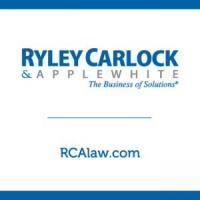The following information accompanies a presentation Mike gave to members of the Arizona Commercial Mortgage Lenders Association (ACMLA) on March 12, 2019.
Arizona Case Law – Property Tax Exemptions
R.O.I. Properties LLC v. Ford (AZ Court of Appeals 2-21-2019)
Luz Social Services, Inc., a 501(c)(3) nonprofit organization, operated nonprofit charter schools on three parcels of property it owned in Pima County. The Arizona statutes exempt from taxation property owned by a 501(c)(3) nonprofit organization that operates as a charter school if the property is used for education and not used or held for profit. Luz filed a bankruptcy petition in April 2014, and Compass Bank, which was the beneficiary of a DOT on the property, sought relief from the bankruptcy stay to pursue a sale of the property. In February 2015, the bankruptcy court granted limited stay relief and authorized Compass to sell the property, but not before May 29, 2015, and permitted the schools to continue to operate until that date. R.O.I. was appointed as receiver of the property. All schools ceased operations on May 29, 2015.
The Pima County Assessor classified the property as a tax exempt charter school and applied the exemption through the 2014 tax year, but assessed taxes against the property for the 2015 tax year. The property was eventually sold to a third party on April 28, 2016. The next day, in conjunction with the closing of the sale, R.O.I. paid the full amount of the 2015 taxes owed on the property plus interest, totaling over $180,000. [You might recall that first half 2015 taxes would have been due October 1, 2015, and delinquent November 1, 2015, while second half 2015 taxes would have been due March 1, 2016, and delinquent May 1, 2016.]
In April 2017, R.O.I. and Compass filed an action in Superior Court and a petition with the Pima County Board of Supervisors asserting that the property remained entitled to the charter school exemption through the 2015 tax year and requesting a refund of 2015 taxes paid. The Board of Supervisors denied the petition and the Superior Court dismissed the action. R.O.I. and Compass then appealed to the Court of Appeals.
The Court of Appeals held that the property lost its exempt status for the entire 2015 tax year when the charter school ceased operations as of May 29, 2015. The Arizona statutes provide that property and buildings belonging to a 501(c)(3) nonprofit organization that operates as a charter school are exempt from taxation beginning on the date the nonprofit organization acquires ownership of the property and buildings if the property and buildings are used for education and are not used or held for profit. To establish entitlement to the exemption, the qualified charter school must file an initial eligibility affidavit with the County Assessor in the first two months of the tax year, and an additional eligibility affidavit each year thereafter. If a qualified charter school provides the Assessor with proof of its 501(c)(3) tax-exempt status, the annual affidavit requirement is waived until all or part of the property is conveyed to a new owner or is no longer used for education, at which time the organization must notify the Assessor in writing.
For most taxpayers, failure to timely file an exemption eligibility affidavit (or acquiring the property after the time to file has passed) waives entitlement to the exemption. The charter school exemption statute provides a special administrative remedy that allows charter schools faced with those circumstances to directly petition the County Board of Supervisors to secure the benefit of the exemption and obtain a refund of any property taxes paid in the preceding year.
The Court of Appeals noted that exemptions represent a departure from the general rule that all taxpayers should share the common burden of taxation, and that statutes granting exemptions must be strictly construed, with all ambiguities construed against the exemption. The Court held that ownership by a nonprofit charter school is not enough to qualify for the tax exemption; the property must also be used for education. The property was not entitled to an exemption for the 2015 tax year because it lost its tax-exempt status when the charter schools ceased operation and the property was no longer used for education. The court also noted that the property tax exemption statutes do not suggest that the benefit of the exemption survives after the property no longer meets the substantive eligibility requirements, nor do they authorize a proration of the exemption based on the portion of the tax year during which the eligibility requirements were met.
Lender takeaway. A lender making a real estate loan to a nonprofit organization should (a) confirm that the organization has timely filed its exemption eligibility affidavit, and (b) be mindful in considering alternative uses of the project as an exit plan that the property may no longer qualify for the property tax exemption assumed in the lender’s initial underwriting process.
Arizona Case Law – Arizona Prompt Pay Act
SK Builders, Inc. v. Smith (AZ Court of Appeals 1-29-2019)
In September 2010, the Smiths entered into a contract with SK Builders to build a home for about $1.6 million. The home was approved for occupancy on March 22, 2012, subject to final inspection and corrections.
On May 1, 2012, SK submitted its third amended Payment Application No. 19 (“PA19”) to the Smiths, requesting payment of about $180,000. The Smiths had previously made progress payments of about $1.5 million. Before SK submitted the third amended PA19, the architect/ contract administrator sent SK a letter advising that no further payment would be made until certain outstanding issues were resolved.
The Smiths terminated their contract with SK effective May 5, 2012. They did not pay SK the amount requested in PA19, nor did they object in writing to any of the items contained in PA19. SK sued the Smiths for violating the Arizona Prompt Pay Act (“APPA”), breach of contract and unjust enrichment. The Smiths counterclaimed against SK and several others. The trial court found that the Smiths violated the APPA by failing to object in writing to any of the items in PA19 within 14 days after its submission, but found in favor of the Smiths on SK’s breach of contract claim and dismissed SK’s unjust enrichment claim.
The Smiths argued to the Court of Appeals that PA19 did not comply with the requirements for a progress payment under the APPA because most of the work in PA19 was completed outside the preceding 30-day billing cycle and that PA19 was a “final billing” that did not impose the same obligations and time limits on them as a progress payment application. To recap, the APPA (at the time) included the following provisions:
(a) An owner is required to make progress payments to a contractor on the basis of a duly certified and approved billing or estimate of the work performed and the materials supplied during the preceding 30-day billing cycle.
(b) Payment must be made within seven days after the billing or estimate is certified and approved.
(c) The billing or estimate is deemed approved and certified 14 days after the owner receives it unless before that time the owner or its agent prepares and issues a written statement detailing which items in the billing or estimate are not approved and certified.
(d) An owner may object to a billing or estimate, or portion of a billing or estimate, for unsatisfactory job progress, defective construction work or materials not remedied, disputed work or materials, or failure to comply with other material provisions of the construction contract.
(e) Payment shall not be required unless the contractor provides the owner with a billing or estimate for the work performed or the materials supplied in accordance with the terms of the construction contract between the parties.
(f) A construction contract may not alter the rights of any contractor, subcontractor or material supplier to receive prompt and timely progress payments under the APPA.
The Smiths did not object to the final amended PA19 from SK within the statutory 14-day period or pay it within the statutory 7-day period that followed. The Smiths argued that their compliance with the APPA’s time limitations was unnecessary in this case because PA19 contained work completed and materials supplied outside the 30-day billing cycle and the Court of Appeals (somewhat surprisingly) agreed that SK was not entitled to prompt payment for any work performed or materials supplied outside the preceding 30-day billing cycle, and shifted to SK the burden of proving which costs fell within the billing cycle.
Lender takeaway. Most construction loan agreements disclaim any lender obligation to facilitate the owner’s compliance with the APPA, but lenders try to be helpful in this regard (which may now include noting for the customer whether any items included in a pay application fall outside a given 30-day billing cycle).



 />i
/>i
